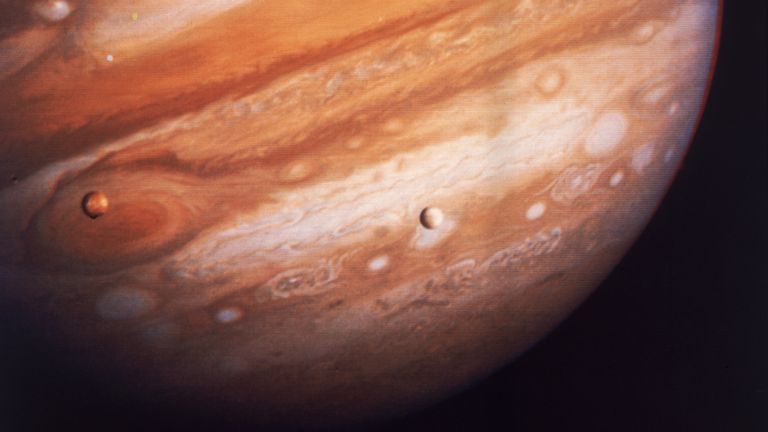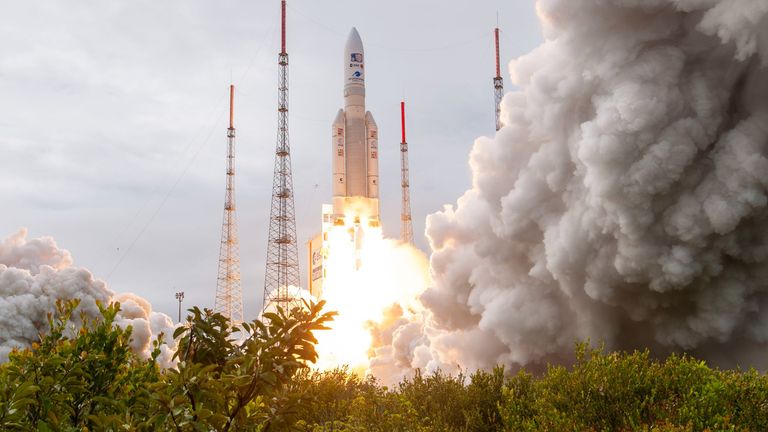Study of ancient meteorites 'reveal secrets of Jupiter's formation'
Researchers have found the first evidence to tentatively back up the theory that the planet was once much closer to the sun and moved over millions of years.
Monday 15 May 2023 17:01, UK
A ground-breaking study of ancient meteorites has provided the first evidence to suggest that Jupiter was once much closer to the sun before it shifted position.
The research tentatively backs up the theory that when the planet was formed, billions of years ago, gravitational forces slowly sucked it towards the centre of the solar system, and that it was once roughly as close as Mars now is.
However Jupiter was then pulled back out again to its current location following the formation of Saturn, scientists believe.
It is thought that during this back-and-forth migration, which took place over millions of years, the giant gas planet caused major gravitational disruption to asteroids and other bodies - including causing some of them to smash into each other.
Until now there had been no physical evidence to support the so-called "Grand Tack" theory, but scientists believe they may have found it after an international team of researchers analysed a collection of angrite meteorites.
The rocky debris, collected from the Antarctic and North West Africa, were formed around 4.5 billion years ago - around the same time as Jupiter's suspected formation and migration.
A chemical analysis found single samples were found to have two different planetary origins, suggesting the meteorites were the result of mid-space collisions, potentially caused by Jupiter's gravitational disruption in the solar system.
Read more:
Is alien life on Jupiter's moons? European space agency launches mission to find out
Largest cosmic explosion ever spotted by astronomers
Be the first to get Breaking News
Install the Sky News app for free


'A huge solar system event'
Ben Rider-Stokes, a PhD student at the Open University, said the findings provided important clues about the formation and migration of Jupiter.
He added: "This study indicates these meteorites are a result of asteroids and bodies colliding together and possibly due to the gravitational disruptions of Jupiter's formation and movement.
"This, therefore, provides the first empirical evidence for this event, which has only been previously modelled."
Mr Rider-Stokes said what happened to Jupiter had been "a huge solar system event".
"The formation and migration of giant gas planets such as Jupiter are crucial to the evolution of planetary systems, and yet the timing of these events in our solar system remains largely unconstrained.
"Angrite meteorites represent some of the oldest materials in the inner solar system, and therefore provide an exclusive window into the processes that occurred during this period," he said.
The findings have been published in the journal Nature Astronomy.

